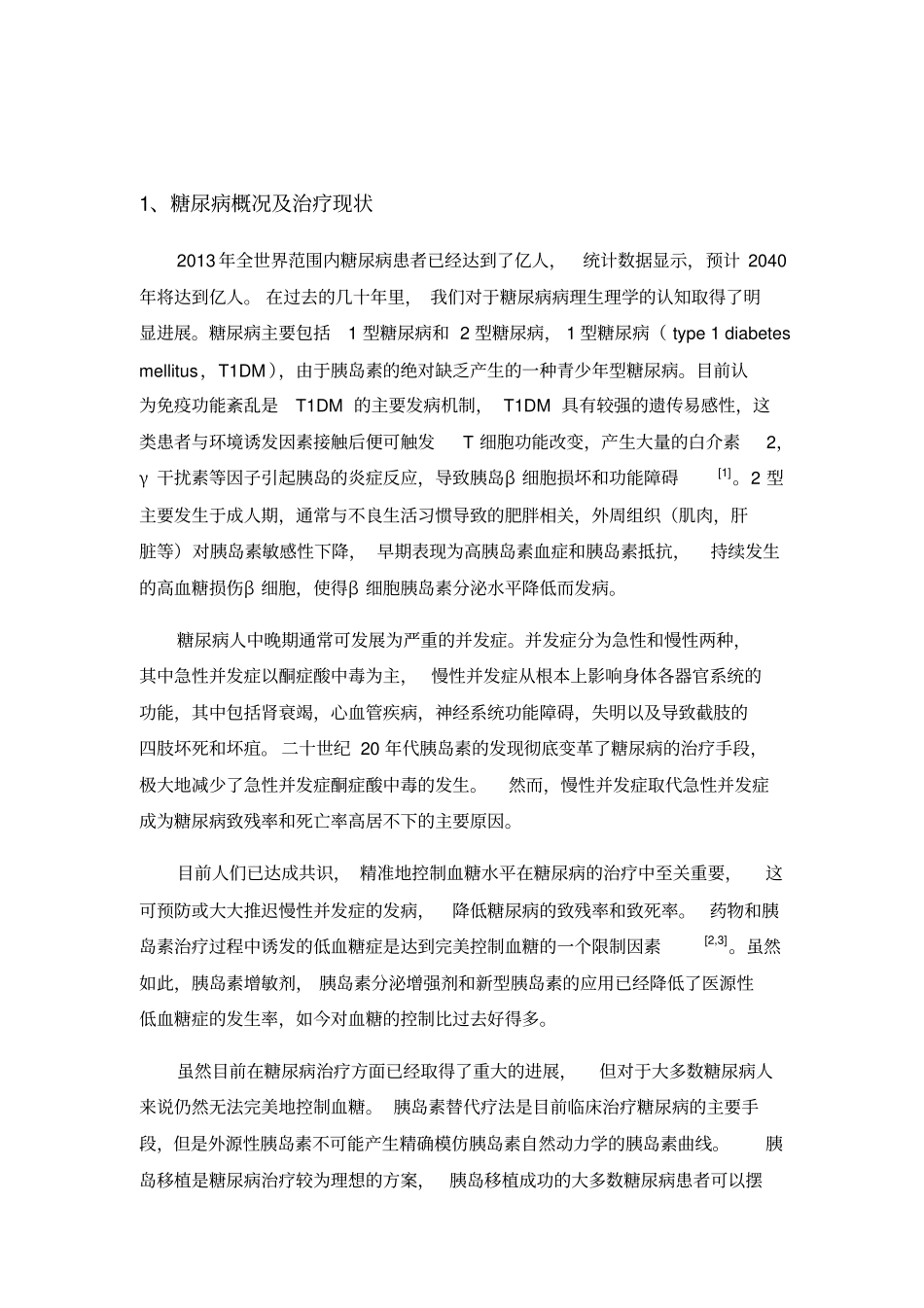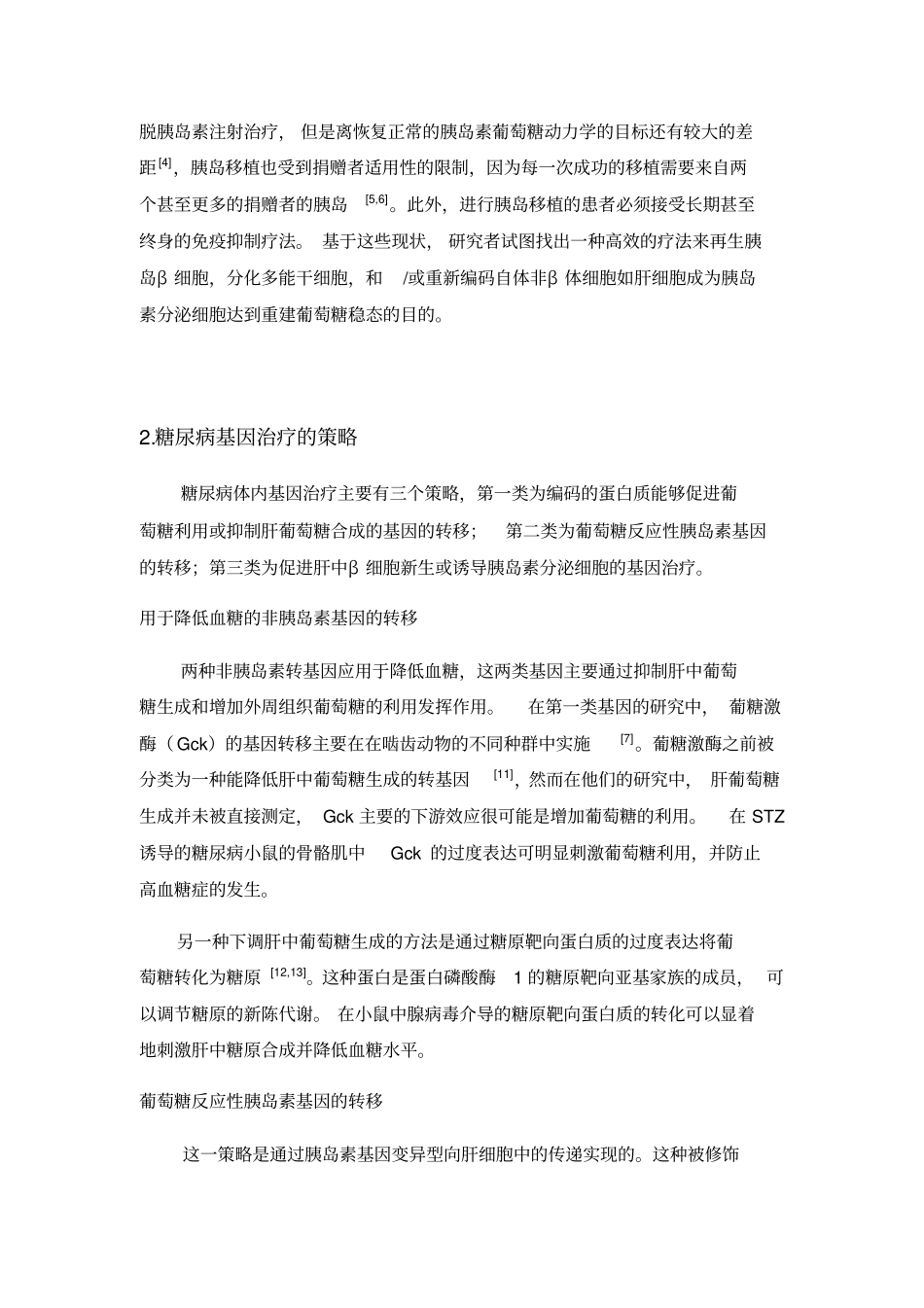糖尿病基因治疗的现状及展望彭博综述(哈尔滨医科大学)[摘要] 糖尿病是伴有不同程度胰岛素缺乏或胰岛功能障碍的一类代谢性疾病。由于当今治疗 1 型糖尿病的方法在预防长期并发症方面收效甚微,研究者试图找出一种有效的疗法来再生胰岛β 细胞,分化多能干细胞,和/或重新编码自体非β 体细胞如肝细胞成为胰岛素分泌细胞达到重建葡萄糖稳态的目的。本篇文章将从糖尿病基因治疗的策略、 关键基因以及基因治疗的载体这三个方面来进行论述。[关键词 ]糖尿病;基因治疗;胰岛素分泌细胞;胰腺转录因子The current status and prospect of gene therapy for diabetes mellitusPeng Bo(Harbin Medical University )[Abstract]Diabetes is a metabolic disease associated with varying degrees of insulin deficiency or islet dysfunction. Because current methods for treating type 1 diabetes (T1D) are ineffective in proventing long-term complications, researchers have sought to indentify alternative therapies that regenerate pancreatic beta cells, differentiate pluripotent/progrnitor stem cells, and/or reprogram autologous non-pancreatic somatic cells, such as liver cells, into insulin-producing cells (IPCs) for restoring glucose homeostasis. In this paper, we will elaborate on the key genes, vectors and strategies of gene therapy in the treatment of diabetes mellitus.[Key words] diabetes, gene therapy, insulin -producing cells (IPCs), pancreatic transcription factors (PTFs).1、糖尿病概况及治疗现状2013 年全世界范围内糖尿病患者已经达到了亿人,统计数据显示,预计 2040年将达到亿人。 在过去的几十年里, 我们对于糖尿病病理生理学的认知取得了明显进展。糖尿病主要包括1 型糖尿病和 2 型糖尿病, 1 型糖尿病( type 1 diabetes mellitus,T1DM ),由于胰岛素的绝对缺乏产生的一种青少年型糖尿病。目前认为免疫功能紊乱是T1DM 的主要发病机制, T1DM 具有较强的遗传易感性,这类患者与环境诱发因素接触后便可触发T 细胞功能改变,产生大量的白介素2,γ 干扰素等因子引起胰岛的炎症反应,导致胰岛β 细胞损坏和功能障碍[1]。2 型主要...


